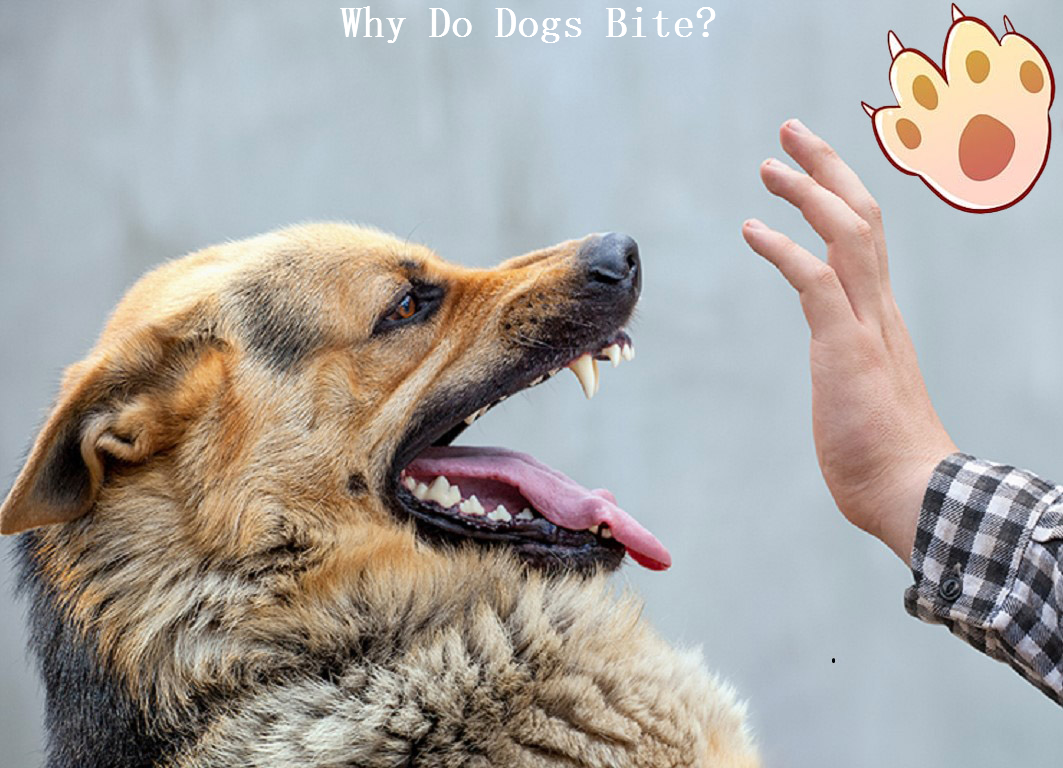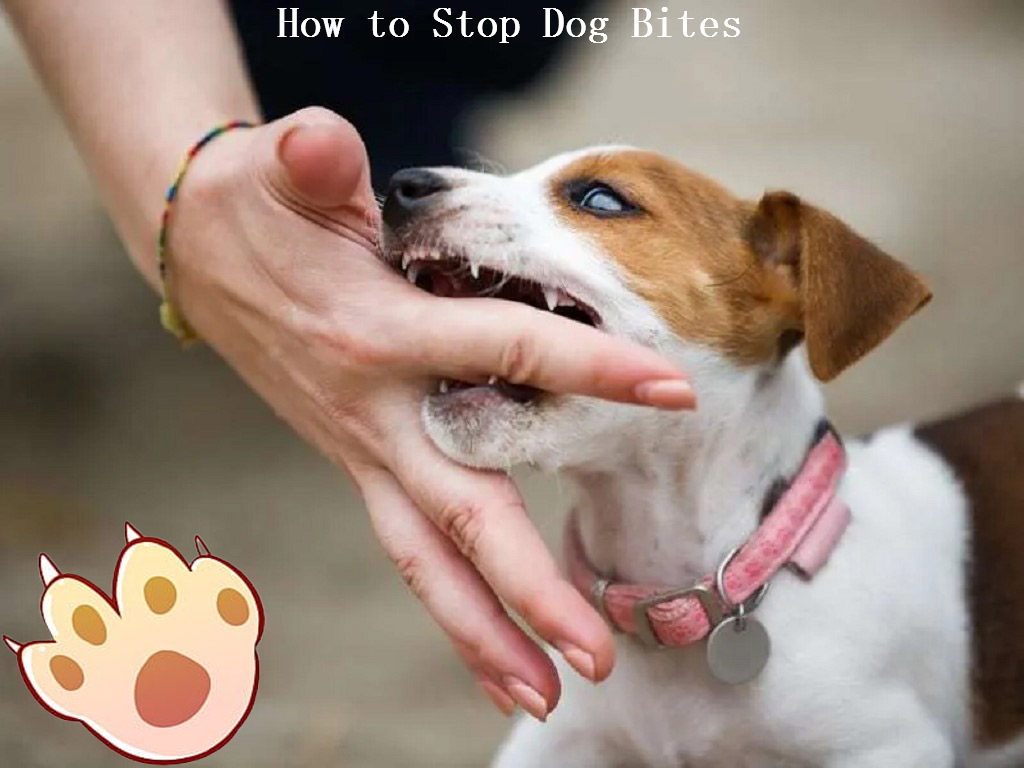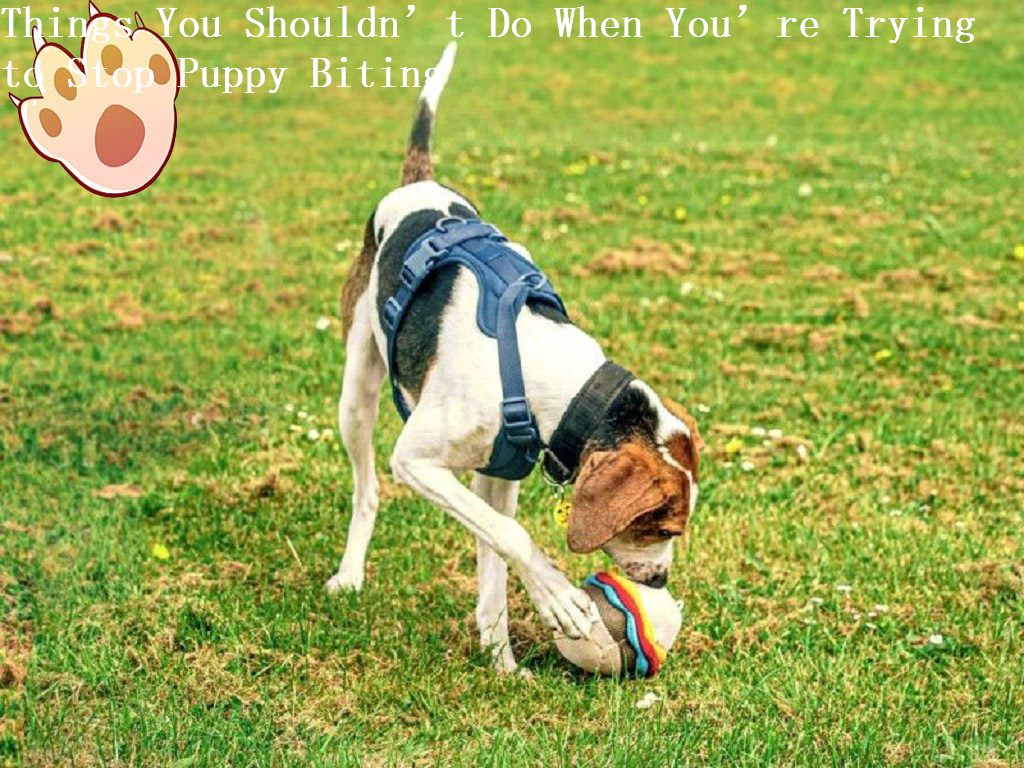
For most new pet owners, biting is one of the most common challenge. Although biting is dogs’ instinct, their sharp little teeth can quickly turn a playful nibble into an annoying or even painful habit. Therefore, learning how to stop a puppy from biting is essential for both your comfort and your dog's development. In this article, we’ll explore the reasons why dogs bite, how to stop a dog from biting, and what you shouldn’t do when trying to stop the behavior. We hope this article helps you teach your dog how to get rid of biting habit, and make them a well-mannered and happy puppy.
This video is owned by the original creator on YouTube and is embedded in compliance with YouTube's Terms of Service. Our website provides independent commentary and analysis.
Why Do Dogs Bite?
Understanding why your dog bites is the first step in changing this behavior. In fact, there are several reasons why they bite. Below are the main ones:
1.Self-protection
Just like humans, dogs have a natural instinct to protect themselves from perceived threats. For instance, if your dog feels threatened by unfamiliar people, animals, or situations, they may bite to avoid danger. Additionally, they may bite to defend their territory, puppies, or a family member.
2.Fear
When your dog feels frightened, it might react by biting as a way to protect itself. For instance, if you startle a dog by waking it up or approach suddenly from behind, it may bite to escape the situation or defend itself. If a dog has had negative experiences in the past, it may be more cautious or defensive in similar situations.
3.Pain or Discomfort
Dogs may bite when they feel pain or discomfort to protect themselves from further injury or to express their distress. For instance, if your dog is hurt, it might nip or bite when you touched in a sensitive area.
4.Teething
Your puppy may bite when their teeth start to grow, as their gums may be a bite sore. During this time, your dog tends to chew more frequently on objects, such as you, your clothes, and even your hair.
5.Exicement
Your puppy may bite simply because it is excited. When your puppy is full of energy or enthusiasm, it usually express itself with its mouth, such as by biting you or your clothes, especially during the playtime.

How to Stop Dog Bites
As a pet owner, it is your responsibility to ensure your dog is properly trained and under control at all times. Changing your dog's bite behavior require patience and consistency, here are some effective strategies to prevent your dog from biting:
1.Socialize Your Dog Early
Socializing your puppy early can help them become more comfortable and less likely to bite out of fear or insecurity. You can make your puppy expose to a variety of people, animals, and environments at an early age. These positive socialization experiences can help them build confidence and trust.
2.Use Positive Reinforcement
In order to train a well-mannered puppy, you can reward them with treats, praise, or playtime when they perform well. For instance, when your dog stops biting, immediately reinforce that behavior to show them that gentle interactions are rewarded.
3.Redirect the Behavior
In fact, bad behavior can be changed through shifting the target. For instance, if your dog starts bitting, you can redirect their attention to an appropriate toy or chew item. This can teach your dog that biting objecting is acceptable, but biting humans or other pets is not.
4.Teach Bite Inhibition
Bite inhinition refers to teaching dogs how to express themselves naturally by controlling the strength of their bites. It means your dog can use its mouth gently, especially important during play and interactions with humans. You can start by gently playing with your puppy. If it bites too hard, immediately stop the play and intimate another dog's reaction with a sharp and high-pitched "ouch". This signals to your dog that the bite was too hard. After a short pause, you can continue the play and reward your dog for gentle behavior. Over time, your dog will learn that biting too hard ends of play, while gentle behavior is rewarded.
5.Provide Plenty of Exercise and Mental Stimulation
From the above we have learned that some dogs bites simply out of excitement. They are full of energy and enthusiasm. Regular exercise and interactive toy can help your dog release excess energy and reduce the biting behavior.
6.Establish Clear Boundaries
To help your puppy develop good habits, you must teach them what behaviors are acceptable and what are not. If your dog starts biting during play or interaction, calmly stop the activity and walk away. Avoid yelling or physical punishment, as this can lead to fear or confusion. You can use a firm but calm voice to say “no”, and immediately stop the fun. This approach can help your dog understand clear boundaries—gentle behavior keeps your attention, while biting results in losing it.
7.Seek Professional Help if Necessary
If your dog's biting behavior continues, or even gets worse, consider consulting a professional dog trainer. They can provide detailed guidance to help your dog correct the behavior.

Things You Shouldn’t Do When You’re Trying to Stop Puppy Biting
To successfully correct your dog's biting behavior, there are some things you shouldn’t do during the process, here are some basic rules:
1.Yelling or Physical Punishment
If your dog start biting, avoid to yelling at them, tapping them on the nose, or holding their mouth shut, as these will lead to fear or confusion.
2.Provoking or Antagonizing
When you are trying to stop your puppy from biting, never provoke, tease, or antagonize them. Because some rough behavior, such waving your hands in their face, tapping their nose, or provoking them on purpose, can cause fear, frustration, or even lead to defensive aggression.
3.Keeping Children Close
When your puppy is still learning not to bite, it's best to keep children away. Children often move unpredictably and may unintentionally provoke biting by grabbing, hugging too tightly, or playing too roughly. This can confuse or overstimulate the puppy, increasing the chance of biting.
4.Inconsistency
Don’t give up on training, thinking your dog will learn not to bite on its own, as inconsistency sends mixed signals to your puppy and slows their learning. For instance, if you sometimes allow playful biting and other times punish it,your puppy won’t understand what's right or wrong. However, consistency can help your puppy build better habits faster.

Biting is a natural instinct but an undesirable behavior for dogs, as it can cause harm to pet owners. In oder to successfully correct your dog's biting behavior, knowing reasons behind it is important and necessary. Whether the cause is excitement, fear, teething, or self-protection, you can apply proper techniques to to guide your puppy toward gentle interactions. Using positive reinforcement, socializing your dog early, establishing clear boundaries, or teaching bite inhibition can make your puppy gentle behavior. At the same time, you need to avoid common mistakes during the process, such as yelling to your dog, provoking them, or keeping your children close to them.
2018-2025 © PupsLover.All Rights Reserved.